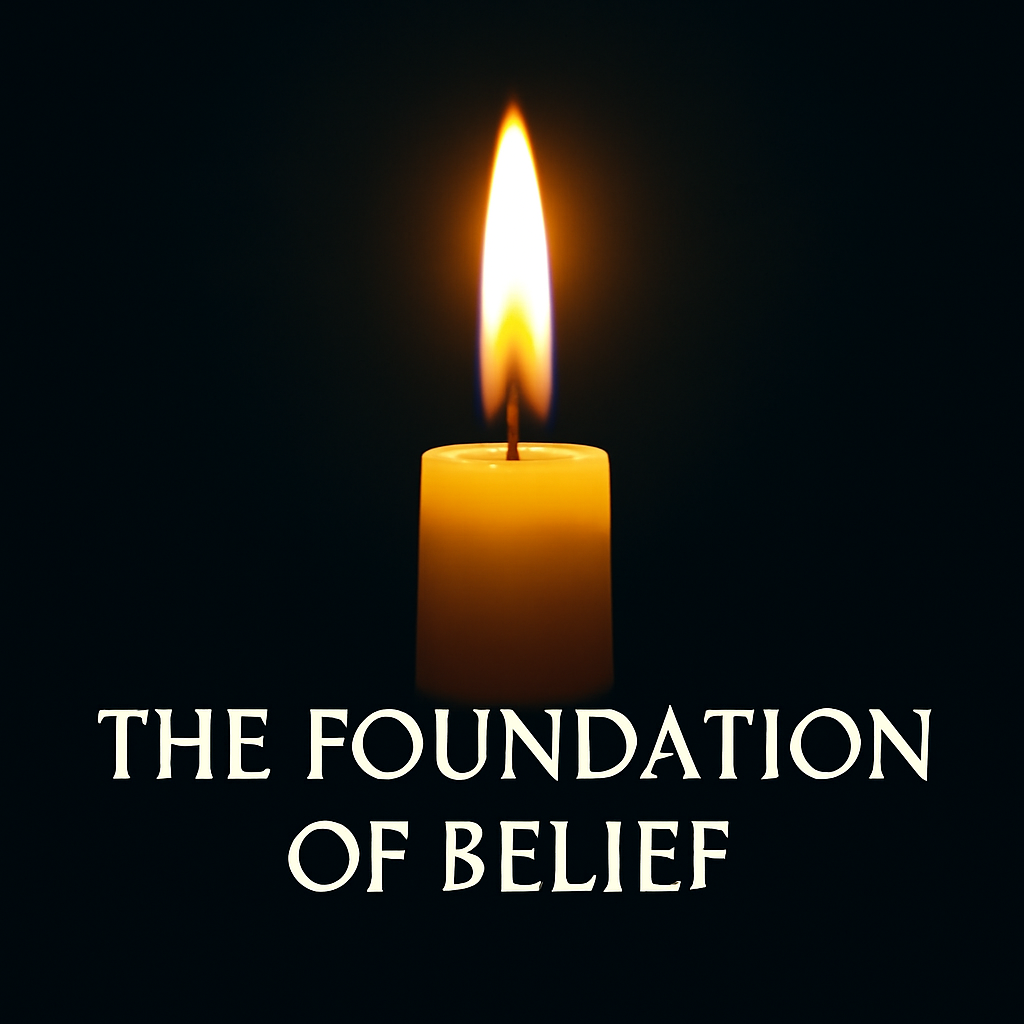
Belief, at its heart, is a fundamental driving force. It’s a deep-seated confidence in the good things we aspire to and an awareness of the profound potential that lies, often untapped, within each of us. This kind of belief is the wellspring of a meaningful life and personal growth. However, true belief isn't about accepting things without question; it's a journey of personal inquiry, reflection, and lived experience.
A belief system that guides us toward inner growth and peace can't be based on superstition or rigid, unexamined rules. When our convictions aren't built on understanding and personal experience, they can actually hold back our true development. Misguided beliefs, adopted more out of habit or external pressure than inner discovery, can weaken our ability to think for ourselves and see clearly.
A mixed-up or superficial belief, lacking deep personal reflection, often leads to relying on external forms or borrowed ideas without checking them against our own inner compass. This can make our minds dependent, lacking in self-reliance, and make it harder to achieve genuine inner freedom. When belief isn't paired with understanding and real-world experience, it's tough to stand firm, be strong, and feel truly free on our path.
Timeless teachings, like those found in respected traditions (for example, the Christian scriptures), have been passed down through generations. There have been times when core messages of love, forgiveness, and hope have brightly lit the way for many. Yet, there have also been periods when this deep meaning was clouded by formal interpretations or practices that strayed from the original spirit. Spiritual vitality, whether it flourishes or fades, often hinges on how well we understand and live out these noble principles. A superficial understanding, or adding unnecessary elements, can diminish the power of these messages.
Perhaps more of us could be encouraged to take the time to reflect deeply on the meaning of life and wise teachings. Sometimes, people might identify with a certain tradition, but their way of life and thinking doesn't truly reflect its core values.
Historically, there have been instances where external forms or cultural customs were given more importance than the essence of the message. The authentic teachings and the lived experiences of those who came before us—those who found peace and meaning—sometimes need to be rediscovered with fresh eyes and a deeper inquiry.
It's not uncommon for people in their daily lives to rarely make time for inner quiet, to listen to their conscience, to reflect, or to act on their deepest insights. Often, it's only when faced with challenges that they look for something to hold onto. They might see spiritual practices as a temporary fix, and noble ideals as an external source of help in times of need, rather than as a compass for inner development and a connection to universal values.
Many insightful teachings, like the words of spiritual guides (for instance, Jesus in the Gospels), weren't meant to force belief but to open a path for each person to discover for themselves. He often used stories, everyday examples, and his own life to illustrate profound truths. He once said, "The truth will set you free" (John 8:32, paraphrased), implying that understanding and living by sound principles bring inner liberation.
These kinds of teachings invite personal reflection and commitment. This shows that the spiritual journey isn't about blind obedience, but a belief nurtured by understanding and personal experience.
The absence of coercion in belief highlights a respect for each person's unique journey. At the same time, a belief that lacks understanding of its foundational principles may not lead to deep transformation.
Jesus himself noted the difference between outward appearance and inner substance: "Not everyone who says to me, 'Lord, Lord,' will enter the kingdom of heaven, but only the one who does the will of my Father who is in heaven" (Matthew 7:21, paraphrased). This can be understood to mean that it's not empty words or formal rituals, but the actual practice of principles like love and justice that truly matters. So, anyone who seeks only personal benefit from their beliefs, without striving to live by the noble values those beliefs represent, hasn't truly grasped the core.
Genuine belief needs to go hand-in-hand with self-reflection and clear reason. When understanding comes from experience and thought, that belief becomes solid. For many spiritual paths, to believe without seeking to understand can easily lead one down a path of mere habit.
The spiritual journey encourages each individual to experience and assess for themselves. The Apostle Paul also advised, "Test everything; hold fast what is good" (1 Thessalonians 5:21, paraphrased), encouraging an active and discerning approach.
Sacred texts, like the Bible or other wisdom literature, can be seen as valuable sources of inspiration and guidance. However, their value isn't in mechanically following them, but in their ability to spark understanding and motivate right action. They are teachings, shared experiences from those who have walked the path before us in search of meaning and wholeness. Jesus himself was often described as a teacher, a guide.
The role of a spiritual teacher, or of wise teachings, can be likened to that of a guide for those searching for direction, or a physician sharing healing methods for those in spiritual or emotional distress.
If those seeking the way don't follow the guidance offered, they are unlikely to reach their destination. If a patient doesn't apply the remedies shared, their discomfort is unlikely to ease. This is a matter of individual responsibility.
If a person doesn't reflect on and practice the good teachings they receive, those teachings can hardly bring real benefit. Therefore, outward acts of gratitude or reverence, while they may have some meaning, are not as important as practicing and living by those noble principles in daily life.
Based on reflection and universal principles of cause and effect, we can see that true liberation or peace doesn't come from an external power granting it randomly. Instead, it's the result of personal effort, understanding, and right practice. Showing respect for teachers or high ideals is valuable. But to achieve peace and awakening, each person needs to see such teachings as guiding stars, and teachers as fellow travelers who have gone before and shared their experiences.
Consider spiritual symbols or concepts, like "Christ-consciousness" or "Buddha-nature," as ideals of enlightenment, love, and wisdom that each person can aspire to and cultivate within themselves. The belief of someone on a spiritual path is faith in their own capacity for self-awareness and self-improvement, faith in the power of love and understanding—not an expectation of a miracle or a blessing from an external force without personal effort.
Understanding this, we see that negative mindsets, superstition, or relying on external factors without inner cultivation is not the path to awakening. The spiritual seeker needs to be careful, always maintaining an objective and inquisitive attitude while learning and practicing, much like a scientist in the realm of the spirit. The mind of the learner must be a place of refinement, clear discrimination, not enslaved by rote knowledge or emotional biases, but always oriented toward truth verified by life experience.




